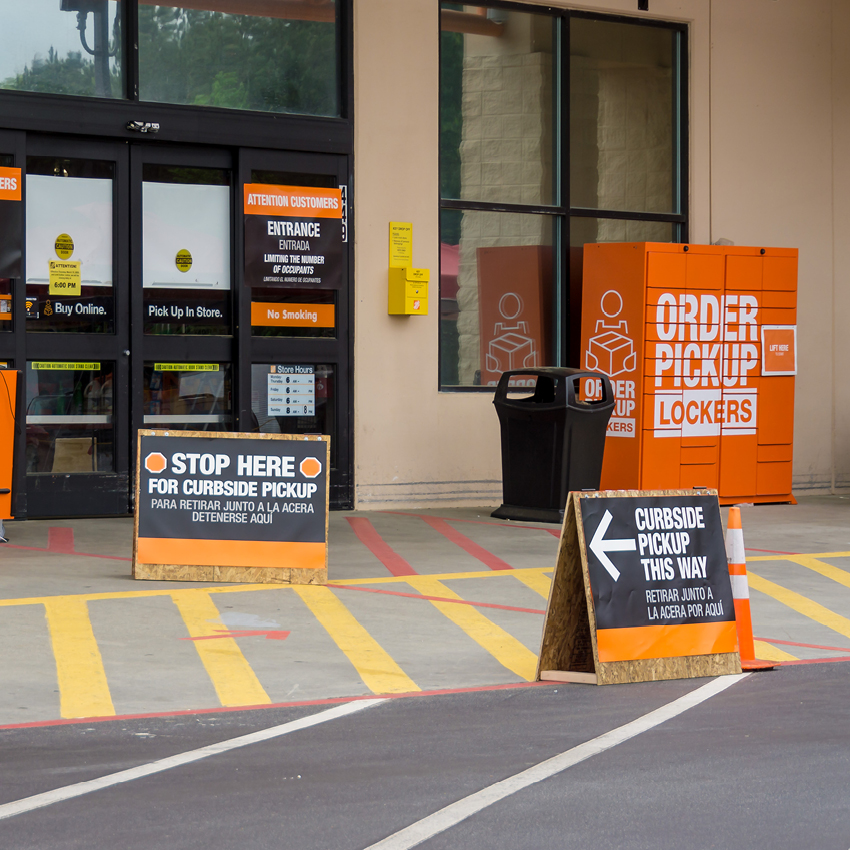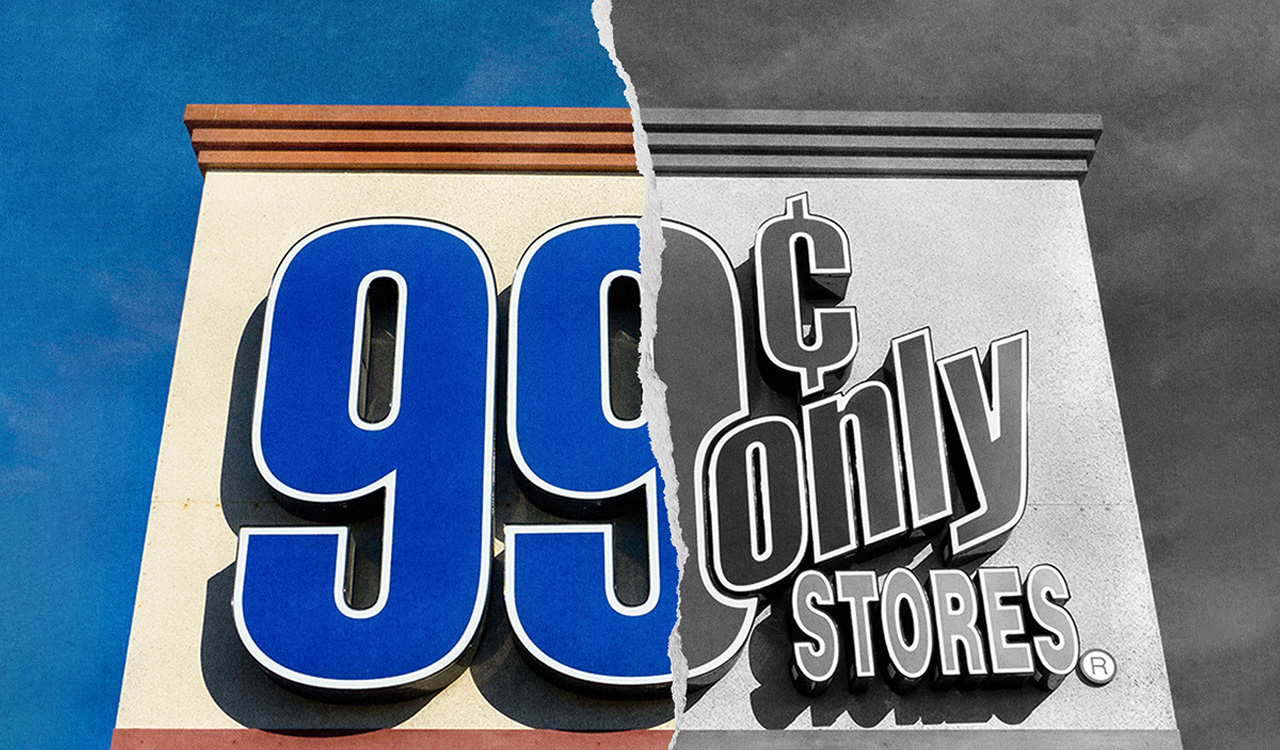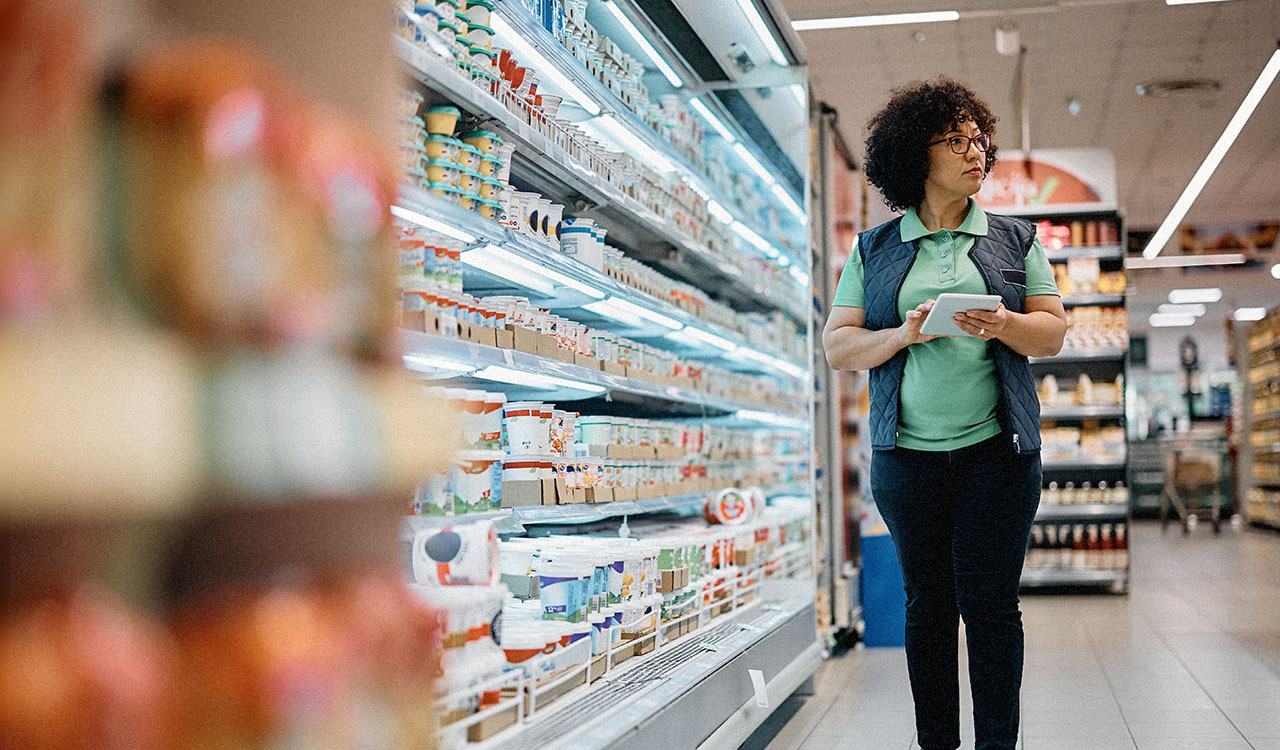Oh, yes. It’s callout time. Deloitte spoke to “The Great Retail Bifurcation” well before the Covid crisis. But, since Covid spread to the Western world, we’ve seen a 26 percent increase in commercial Chapter 11 bankruptcy filings in April alone. Retailers without a strategy to remain relevant and agile aren’t going to make it through this. And there are certain retailers that seem to be going out of their way to estrange themselves from the few customers they have left.
The “what are they thinking” force is strong with some of these retailers. Whether it’s a poorly run curbside pickup operation, paying hollow lip service to social issues, not enforcing social distancing or mask use in store, a lack of inventory, or poor customer service, we’ve comprised a short run-down of which retailers NOT to emulate during lockdown. And what to do instead.
Horrific Curbside Pickup Experience at Lowes and Home Depot
Here’s the deal: both Lowes and Home Depot have posted significant sales increases since the onset of Covid. Much of this is due to the fact that sequestered, unemployed customers are turning to home renovations to fill their time. However, Lowe’s sales have eclipsed those of Home Depot. Bloomberg attributed this to more Lowes stores being located in rural areas, but you’d have to be blind to think that Lowes and Home Depot’s political affiliations––which are as divergent as Amazon and Walmart––didn’t also play a role.
[callout]It’s time for online retailers to stick to hawking products to repeat customers in their actual sizes on their Facebook feeds. And to not keep wasting money sending ads to customers with whom they have unresolved customer service issues (Thredup, specifically).[/callout]
Although Lowes and Home Depot are both booming businesses during lockdown, they’re both failing in the curbside pickup arena at many locations. In a recent podcast with my good friends Kizer & Bender as well as Jason Baum, we went into details about our recent experiences with Home Depot and Lowes curbside pickup. I experienced poorly identified pickup instructions and rude employees at Home Depot; when Baum went to Lowes, there was nobody to answer the phones or bring out orders and after 20 minutes of waiting, he went inside and stood in line to retrieve his pickup order. Curbside pickup associates have also been known to stick their heads in the window while making deliveries, thereby eliminating the entire purpose.
While the idea and intent for effective curbside pickup exists at both retailers, they lack the staff to properly execute the concepts. Keeping a few on-call employees to cover demand when there’s a surge would go a long way in eliminating friction points. And there are plenty of experienced retail associates who would be only too happy to take the work right now.
Supply Chain Disruptions & Facebook Ads
It’s no secret that coronavirus outbreaks have disrupted the supply chain. In California, we’re experiencing a quarter shortage as a result of the government shutting down coin production facilities. But the impact of shutdowns on apparel and cosmetics supply chains have been even more drastic. While some retailers are reducing prices due to unsold inventory, others don’t have access to their regular manufacturers and have experienced order backlogs or have sold out of merchandise. TJX retail group said that there was an “incredible availability” of excess stock in the market, but you wouldn’t know it by looking at their picked over brick-and-mortar TJX and Ross Stores.
Where is all of this inventory going? Because it’s not to physical stores. Sure, many retailers have had to reduce sales floor clutter to improve sanitization––or consumers’ perception of it. But too many retailers are still investing in social media ads for inventory they don’t even have in most sizes (here’s lookin’ at you, Nordstrom and Nordstrom Rack).
It’s 2020 and we’re dealing with a global pandemic. It’s time for online retailers to stick to hawking products to repeat customers in their actual sizes on their Facebook feeds. And to not keep wasting money sending ads to customers with whom they have unresolved customer service issues (Thredup, specifically). This is where cross-branch communication really comes into play. Errors happen when retailers don’t have the technology to flag customer accounts with outstanding CX issues, or their marketing algorithms don’t take a customer’s size into account.
Adidas Demonstrates Accountability in Callout Culture
Alright, now let’s talk about how lagging retailers can turn the ship around. Many retailers were paying lip service to the Black Lives Matter movement without taking strides to fight inequality within their own organizations, which is why Sharen Chuter, founder and CEO of Uoma Beauty, created the #pulluporshutup campaign on Instagram. #Pulluporshutup is a direct-action movement urging brands such as Walmart, Etsy, Nordstrom, Apple, Old Navy, and so many more to share their diversity stats––including how many people of color they employ in leadership roles. The result has been eye-opening for the retail industry.
Many brands that were posting in support of the Black Lives Matter movement to boost sales have had to take a cold, hard look at the racial inequity within their own organization. Adidas was one of the retailers called out during this time by a group of internal employees that were aware of the lack of diversity in Adidas’ corporate culture. Instead of trying to stifle employees’ voices or sweep the issue under the rug, Adidas acknowledged that, as a team, there was work that needed to be done. Then (and this is key), Adidas immediately followed with action.
CBS news reports, “Adidas unveiled several moves to fight racial inequality, including a pledge to fill at least 30 percent of all new positions in the U.S. at Adidas and Reebok with Black and Latino people.”
Take note, retailers. This is exactly the type of accountability and agility that next-gen minded consumers demand.
Final Thoughts
Customers aren’t being subtle about what they want from retailers during this time: They want to be kept safe from virus exposure, they want brands to take ethical action, and they want stocked shelves when they come to stores. Throw in adding products to customers Facebook feeds that you actually have in their size and not losing CX tickets and you’re on your way towards not alienating your loyal patrons. It’s all about making your customer feel respected. Show them that you respect their time, their money, and their causes during this time and they won’t soon forget it.




